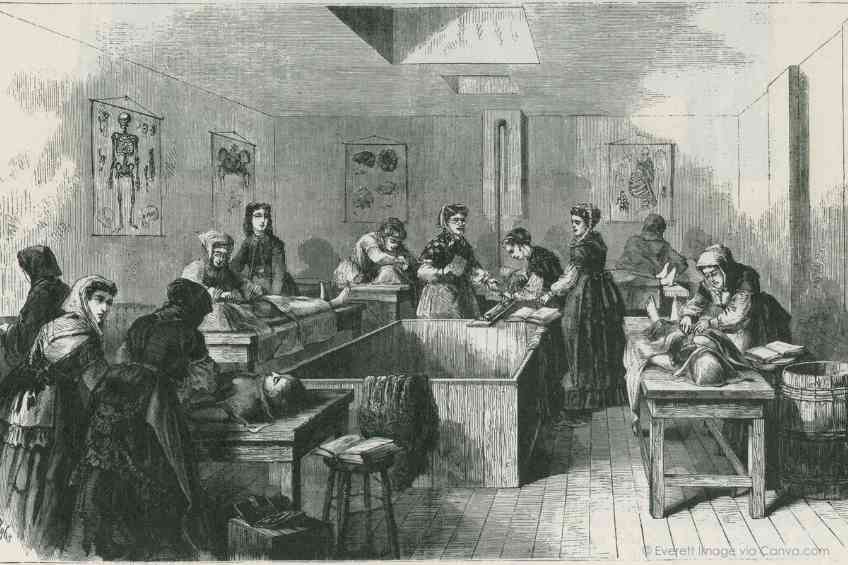The Skinny:
In honor of Women’s History Month this March, WellWell is citing a selection of women pioneers in medicine, research and wellness. The challenges these women faced were enormous and extended well beyond their immediate fields of work. Their impact, however, remains significant and is felt every single day by hundreds of millions of people worldwide. WellWell also realizes that the accomplishments of women aren’t limited to these 10 amazing people. The number of women who have made impacts in medicine and research is not only endless, it is often overlooked. We offer these 10 women up simply as examples of amazing and profound contributors. Read on.
The Slate:
Metrodora
There is some debate as to whether Metrodora ever existed. Many, however, cite her as being a pioneer in medicine who is referred to as the “Mother of Gynecology.” It is believed she was a Greek physician born between 200 A.D. and 400 A.D. Metrodora is also believed to be the author of the medical text, The Diseases and Cures of Woman, which is thought to be the oldest medical document by a woman. The work, which contains 63 chapters in two volumes, outlines gynecological methods still used today.
Elizabeth Blackwell
Elizabeth Blackwell holds the distinction of being the first medical physician in modern times. Born in Britain in 1821, her family moved to the United States in 1832, settling in various places around the country over the next 15 years. She studied privately with sympathetic physicians before finally being accepted into Geneva Medical College (later to be known as Hobart College). She then graduated first in her class in 1849. Blackwell continued studying and practicing in Europe before coming back to the U.S. and eventually opening the New York Dispensary for Women and Children. She also supported medical relief efforts during the Civil War and later opened the Woman’s Medical College in New York.
Florence Nightingale
Florence Nightingale was a driver in expanding the roles of women in medicine. Born in 1820, she is viewed as a British nurse, statistician and social reformer. She is also seen as the author of modern nursing. Famously put in charge of nursing British soldiers during the Crimean War, her personal care of the wounded resulted in her being called the “Lady with the Lamp.” Later, among her other accomplishments, she formalized nursing education and established the world’s first scientifically based nursing school.
Clara Barton
Clara Barton was many things, including being a self-taught nurse who treated the wounded during the Civil War, the founder of the American Red Cross, a teacher and a patent clerk. A humanitarian and a civil rights advocate, she was inducted into the National Women’s Hall of Fame in 1973.
Françoise Barré-Sinoussi
Françoise Barré-Sinoussi won the Nobel Prize for medicine in 2008 for her discovery of HIV, which led to blood tests that could detect the infection and result in more effective treatments. Born in France, her work has helped transform AIDS from a death sentence to a manageable albeit still chronic disease.
Susie Walking Bear Yellowtail
Born in 1903 and orphaned as a young child, Susie Walking Bear became the first registered nurse of Crow descent and one of the first degreed registered nurses of American Indian ancestry in the United States. She eventually worked on the Crow Reservation in a government-run hospital, while also traveling to other reservations as a consultant. Her work and experiences led her to advocate for improvements to the Indian Health Service that among other things helped extend the reach of medical support throughout the Native American community. In 1962 she received the President’s Award for Outstanding Nursing Health Care.
Isabel Morgan
Isabel Morgan’s work as a virologist at Johns Hopkins University helped create an experimental vaccine that eventually resulted in the development of an effective vaccine for polio.
She also worked as a consultant for studies of cancer therapies at the Sloan-Kettering Cancer Institute. In 1958 she was inducted into the Polio Hall of Fame.
Marie Curie
Marie Curie was many things. Born in Poland, she was a revolutionary, a scientist, a humanitarian and a two-time winner of the Nobel Prize for her work in radioactivity and in particular her research and analysis which led to the isolation of radium and polonium. The latter of the two was named after her country of birth. Ultimately, her work pioneered the use of radioactivity for medical and scientific purposes.
Gerty Cori
Born in Poland, Gerty Cori moved to the United States in 1920 and by 1947 became the first American woman Nobel laureate in science. Working with her husband, together they helped generate a wider understanding of how cells use food and convert it to energy through a cyclical process in the muscles. Their research led to treatments for diabetes.
Ann Preston
Ann Preston was born into a Quaker family in Pennsylvania in 1813, the only one of eight siblings to survive. An abolitionist and a supporter of the Temperance movement, she was an activist, physician and educator, who was a strong supporter of women’s education. As the head of the Woman’s Medical College of Pennsylvania, Preston was the first female dean of a medical school in the United States.
Eyes Up:
Want to identify another woman pioneer in the field of medicine? Let us know who at info@WellWellusa.com.
WellWell editors independently identify services and products of interest. If readers purchase anything through the associated links, WellWell may earn a commission, which goes to support our work. Learn More.













